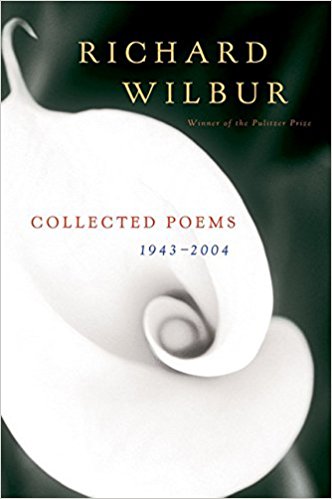Audio
Track:
About
Born in New York City, Wilbur grew up in North Caldwell (New Jersey) and attended Amherst College, graduating in 1942. After serving in the United States Army during World War II, Wilbur went to graduate school at Harvard.
Wilbur’s first collection of poetry was heavily influenced by his experience of war. Wilbur stated, of this work, “One does not use poetry for its major purposes, as a means to organize oneself and the world, until one’s world somehow gets out of hand.” This volume, entitled Beautiful Changes and Other Poems was published in 1947, and through this work, Wilbur established himself as a formal poet with the ability to treat very dark and heavy subjects with elegance and grace and within traditional formal structures of English poetry. His second volume Ceremony and Other Poems came out in 1950, continuing to establish him as a formalist.
Wilbur’s poetry has received criticism for what many felt is an inability to express anything negative, but Wilbur’s style is not meant to be naturalistic in its dealings with the world. He has only meant to express the world that he sees himself: one full of hope and love. His following volumes included Things of This World, (1956), Advice to a Prophet (1961) and Walking to Sleep (1969).
Things of This World won the Pulitzer Prize and the National Book Award in 1957. However, in the 1960s, Wilbur’s popularity waned with the rise of Confessional poetry, such as that of Sylvia Plath and Robert Lowell. Wilbur continued to write formally, and because of that, his poetry came to be viewed by some critics as well-made, but not well-felt.
Wilbur has taught at Wellesley College, Smith College, Harvard, and most importantly at Wesleyan University for twenty years. In 1959, he founded the Wesleyan University Press poetry series, which helped bring to light poets like James Wright and Richard Howard.
Wilbur himself admits that, as he has gotten older, his poetry is “crumbing” at the edges and becoming more personal, with less detached elegance. Many critics have noted that Wilbur’s poetry has moved from highly formal to clearer and simpler verse, though still maintaining traditional constraints. Wilbur won his second Pulitzer in 1988 with his New and Collected Poems, published the same year. (A new edition of this volume was published in 2004, including new poems.)
Wilbur is also distinguished for his work outside of the realm of poetry. The author of many children’s books, Wilbur’s translations of 17th-century theatre pieces by Molière and Jean Racine are still unprecedented. He also wrote the lyrics to several songs in Leonard Bernstein’s Candide (including “Glitter and Be Gay” and “Make Our Garden Grow”), as well as the libretto for William Schuman’s cantata On Freedom’s Ground.
–Christie Finn
Main Source: Poetry Foundation, www.poetryfoundation.org


